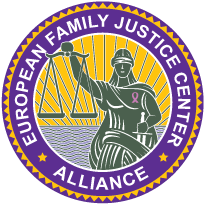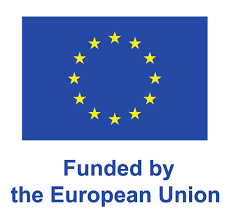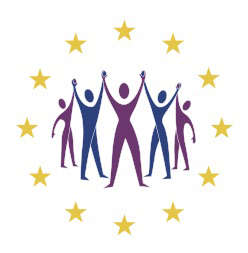COVID 19 within the approach of domestic violence and child abuse
practical guidelines for professionals
The measures taken by the European countries to combat the COVID 19 have a huge impact on all lives of the European citizens. Especially vulnerable groups, like survivors of domestic violence are hit hard by all the restrictions. The concern of all professionals is how to ensure safety for these survivors and their families. In this time of the Corona crisis it is a crucial task for not only professionals, but also for policymakers and the social network to adapt a different and creative approach of domestic violence and child abuse under these changed circumstances, with the aim to prevent escalation of violence and ensure the maximum safety.
We are convinced that all professionals working in European Family Justice Centers or related Multidisciplinary Centers are doing all that’s possible within their power to help and support survivors of domestic violence and child abuse. To also support all these professionals the European Family Justice Center Alliance has made practical guidelines which are aimed to ensure the maximum safety for these vulnerable people. These guidelines are without any obligation. By clicking on the topics, you will be directed to the underlying text.
- COVID 19 impact on domestic violence and child abuse in general and the approach during the Corona crisis
(read online or download in English / Dutch)
- Practical guidelines for multidisciplinary collaboration within the approach of domestic violence/child abuse and housing for survivors and their families
(read online or download in English / Dutch)
- Practical guidelines for professionals in assisting survivors from domestic violence and their families under the COVID 19 measurements with the focus on safety
(read online or download in English / Dutch)
- Practical guidelines on safety measurements for virtual collaboration in assisting survivors from domestic violence and their families
(read online or download in English / Dutch)
- Practical guidelines for the role of schools in a situation of possible suspicion of domestic violence/child abuse
(read online or download in English / Dutch)
- Practical guidelines for the police and juridical organisations
(read online or download in English / Dutch)
- Practical guidelines for the social network of survivors of domestic violence and their children
(read online or download in English / Dutch)
- Practical guidelines for policymakers
(read online or download in English / Dutch)
Special for professionals/organisations working with perpetrators of domestic and sexual violence
The European Network for Work with Perpetrators (WWP-EN) has on their website special guidelines to ensure responsible work with perpetrators during COVID-19:
Other worldwide available COVID-19 resources and webinars
Webinar: Remote Home Visitation: Supporting Clients Experiencing Intimate Partner Violence in the Time of COVID-19
Friday May 20th, 11.00-12.30 pm Pacific time (20.00-23.30 European time)
Given the COVID 19 pandemic, and the shift to virtual home visitation, it’s recognized that is very difficult for home visitors to determine client safety, confidentiality and to promote healthy relationships. The “stay at home” recommendations for communities can increase the risks for survivors of Domestic Violence (DV)/Intimate Partner Violence (IPV) and their children. The lack of privacy for conversations and heightened isolation makes it difficult to assess the home environment and figure out if coercion and abuse are happening to a client.
This webinar is dedicated to evolving promising practices for home visitors within a virtual space to help caregivers who may be experiencing coercion and abuse from their partner, and to help them and their children be safer – but offered virtually.
During the session, presenters will be reviewing how power and control issues may look different within the ‘stay at home’ situation and how these policies might prevent clients from being able to disclose abuse or reach out for help. Talking about healthy and unhealthy relationships and how to help friends and family is a strategy that builds stronger client relationships and allows survivors to hear about resources and ways to promote safety without disclosure of IPV. The intervention strategies we will be sharing are adapted for virtual home visitation settings for staff to use with caregivers.
ACCESS project GAMS Belgium Violence against women is increasing in the context of the lockdown measures taken to prevent and combat the COVID-19 of coronavirus. That is why GAMS Belgium would like to draw your attention to the ACCESS project and the possibilities it offers to facilitate access to support for migrant women who are victims of gender-based violence.
Violence against women is increasing in the context of the lockdown measures taken to prevent and combat the COVID-19 of coronavirus. That is why GAMS Belgium would like to draw your attention to the ACCESS project and the possibilities it offers to facilitate access to support for migrant women who are victims of gender-based violence.
What is ACCESS?
The aim of the ACCESS project is to improve the prevention, protection and support of migrant women in Europe, who are victims of gender-based violence. The project includes an awareness campaign, activities by and for the communities involved, an interactive social map with an overview of support services, an online chat / helpline and training for first-line professionals.
Webinar 22 april ‘hoe zorgen we voor meer veiligheid tijdens de coronacrisis’
Janine Janssen nam de deelnemers in deze webinair op bevlogen en deskundige wijze mee waarom aandacht voor geweld achter de voordeur juist nu belangrijk is. Wat zien we? En wat zien we juist niet? Wat kunnen we doen en wat is het belang van samenwerken? De veel gestelde vragen zullen door Janine en Teun Haans (webinar host namens de Taskforce) in een artikel worden beantwoord. Het volgende webinar is op 6 mei en is bedoeld voor gescheiden ouders.
Video Link to zoom international session from the Task Force ‘Partner-Inflicted Brain Injury’
PINK Concussions is the FIRST EVER non-profit organization to focus on pre-injury education and post-injury medical care for women and girls with brain injury including concussion incurred from sport, violence, accidents or military service. They focus on clinicians, direct service providers and/or researchers.
On the March 31, Pascale Franck and Bert Groen from the EFJCA discussed together with Julia Caroline Daugherty from Spain's Center for Research on Mind, Brain and Behavior trough an international zoom session the following topics:
- The necessity of multidisciplinary, integrated approach of domestic violence and child abuse;
- The Family Justice Center and its guiding principles;
- A holistic view on the approach of domestic violence and child abuse;
- Offender accountability and victim’s safety.
This is the video link
Article about Mask 19 (in Dutch)
Women are using code words at pharmacies to escape domestic violence during lockdown. If they can't talk openly in the store, they can simply say the codeword "mask 19" to the pharmacist behind the counter.
ISPCAN’S recommendations on COVID-19
ISPCAN is committed to providing support to individuals, caregivers, and professionals as they navigate through the COVID-19 pandemic by providing up-to-date resources in collaboration with our partner organizations around the globe. We have gathered resources on this topic and want our members to also share.
Spotting the signs of economic abuse during Corona-virus (COVID-19) outbreak, building safety
Current measures in place to control the spread of the coronavirus (COVID-19) mean that many people will be spending more time at home with an abusive partner and that their usual sources of support may no longer be available. This resource is designed to help you notice signs that someone you care about may be experiencing economic abuse at this time, and to know what you can do to support them.
Alliance for Hope International
On the website of the U.S. Alliance for Hope International, you will find all kinds of resources for Family Justice Centers.
Webinar COVID-19 and the work of Family Justice Centers
The U.S. Alliance for Hope International President Casey Gwinn and CEO Gael Strack hosted a webinar with valuable information and other collaboratives across the country and around the world.
Podcast “What is Hope”?
During a time when the world is dealing with COVID-19, we all need hope. Pathways for Hope to Children’s executive director Michael Burke teamed up with the U.S. Lead Hope Researcher dr. Chan Hellman, director of the Hope Research Center and professor at the University of Oklahoma, Tulsa, to launch a podcast Pathways of Hope.
Webinar working with Perpetrators during the COVID-19 Crisis
Webinar working with Perpetrators during the COVID-19 Crisis: Lessons from Europe.
Webinar series for promoting safety and offender accountability from the Global Rights for Women (GRW)
Partners around the world are working together to improve legal systems and community responses to violence against women and girls. Free online training sessions for addressing the challenges of COVID-19 and gender-based violence.
Other European networks
Here you find some links to other European networks:


